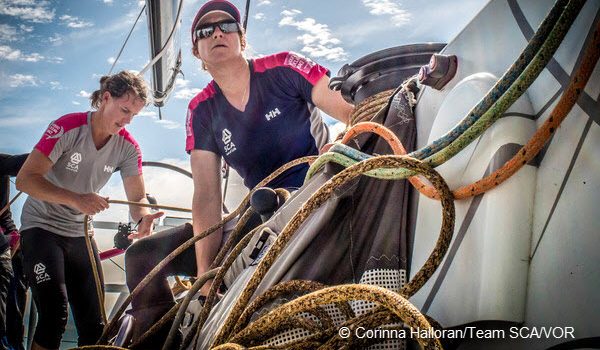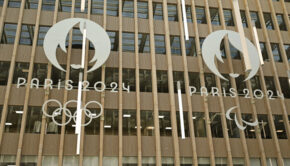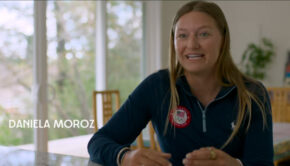Driving more equality and diversity
Published on November 20th, 2020
The announcement in 2019 of the Mixed Two Person Keelboat Offshore event for the Paris 2024 Olympics had divided opinions, which is often the case when there is change in the sailing program for the Games. Somebody’s win is generally somebody else’s loss.
But with Olympic sailing centered around high performance boats in short races, the offshore concept was so different that it was easy to question, but what’s not questionable is its positive impact on the sport. Shorthanded sailing is growing big time.
However, it is important to remember that this energy and interest has propelled the cart in front of the horse, as while World Sailing has presented their 2024 sailing program to the International Olympic Committee, nothing is certain until it gets approved in December 2020.
One group that stands to benefit from the event is the female sailing community, and that is the message which comes from The Magenta Project in this statement they shared with Scuttlebutt:
The sailing crew of Team SCA started The Magenta Project after the 2014–15 Volvo Ocean Race as a conduit to continue to drive the support, enthusiasm, and opportunity for women across both offshore and performance sailing.
So, it was encouraging to see World Sailing announce the new mixed offshore sailing discipline. There is now a global platform promoting mixed offshore sailing at the most prestigious event in the sporting calendar.
The offshore discipline in sailing is without doubt, more relatable to a wider audience as it is simpler to understand. Normally a boat races from A to B, so it is easier to follow, as opposed to a windward leeward dinghy course where boats are traveling in different directions.
There is also the human factor. With onboard cameras and live links to shore, crews are able to post directly onto social media channels sharing progress updates, explaining strategies and expressing emotions and audiences are in the hot seat and able to vicariously sail the race with them.
Critically, the inclusion of mixed events in the Olympic Sailing Competition has and will support the growth of female participation, however, barriers still exist across all disciplines of the sport of sailing, in particular outside the Olympic program.
“It is important that people are able to understand and see the pathways into offshore sailing and this isn’t always clear,” comments Elaine Penhaul, Chair of The Magenta Project. “Stepping from dinghies into keelboats or offshore can be fairly random, often punctuated as much by an element of luck as by ability.
“These pathways need to be clear and financially supported so that the women coming through to compete at this level are competent, experienced and credible. They need to be open to as wide a pool as possible in terms of diversity, including socio-economic diversity, which has been historically challenging in sailing generally and more particularly in offshore racing.”
The recent launch of the Offshore Doubles Sailing Association (offshoredoubles.org) has a mission to strengthen the community of sailors, events and boat classes that are already making double-handed offshore sailing the fastest growing segment of the sport.
The Double Handed Mixed Offshore Event is an exciting development, showcasing the thrill and hardship of day and night sailing offshore with 24/7 media coverage. Offshore Doubles, in part, is dedicated to ensuring the events place in the Olympic Games. Offshore Doubles will be collaborating with The Magenta Project to provide more outreach and awareness for improving the environment for women in sailing across all types of events globally.
Sailing’s toughest round-the-world team challenge, The Ocean Race, is one of very few sailing events that, in its next iteration, will be mandating for mixed crews across all its teams. Chairman Richard Brisius sees the new mixed offshore Olympic class as a natural pathway to the leading offshore events in the sport.
“By The Ocean Race mandating for mixed teams we are part of this catalyst for change, but equally the pathway for women to reach the highest levels in our sport is challenging, particularly for those women looking to compete offshore,” said Brisius.
“Anything that drives more equality and diversity in the sport has to be a good thing. The more opportunities there are to have equal opportunities the better it will be, and it is great to see how the development of the Olympic Classes keep going in this direction with a variety of female only and mixed classes.”









 We’ll keep your information safe.
We’ll keep your information safe.